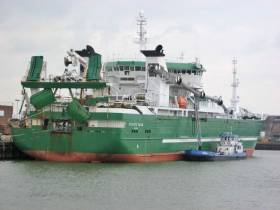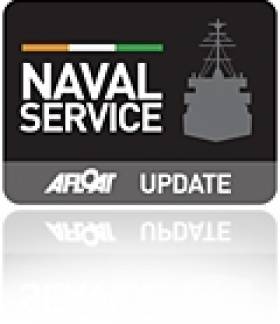Displaying items by tag: Atlantic Dawn
Challenge To Atlantic Dawn’s Influence Over Irish Fishing Fleet
#Fishing - Fishing rights retained in the sale of Irish supertrawler Atlantic Dawn could continue to net many millions of euro for its former owners — much to the ire of smaller operators in Ireland’s fishing fleet, as The Irish Times reports.
Despite being built to fish international waters, the Atlantic Dawn was entitled to a significant “fishing asset”, comprising tonnage, engine power and quota rights under EU rules, due to being flagged as Irish.
Though the ship in question was sold to Dutch owners in 2007, the Atlantic Dawn Group kept its asset — leading to a market standing that opponents say has strengthened disproportionately to the rest of the Irish fleet after the Common Fisheries Policy imposed limits on vessel expansion in 2003.
Now a number of vessels in the pelagic and whitefish sectors are seeking compensation from Brussels as a result of the Killybegs-based company’s extraordinary but entirely legal position.
The Irish Times has much more on the story HERE.
Former Atlantic Dawn Supertrawler Detained in Irish Waters
#Supertrawler - The Irish Times writes that the Naval Service OPV LÉ Roisín (P51) has detained one of the world's largest fishing vessels, the former Irish flagged Atlantic Dawn , for alleged infringements in Irish waters.
The 144-metre supertrawler, which is now Dutch-owned and registered and renamed as Annelies Ilena , was escorted into the vessels former homeport of Killybegs, Co Donegal, last night as part of a joint Naval Service - Sea Fisheries Protection Authority (SFPA) surveillance operation.
The vessel, which is the largest ever detained in an exercise of this type in Irish waters, was handed over to the Garda Siochána for suspected infringements relating to "high grading" of fish.
According to the Naval Service this vessel is the largest ever detained by the Naval Service and is considered to be one of the largest fishing vessels in the world. The detention of Annalies Ilena brings to 922 the number of boardings conducted this year by the Naval Service and this is the thirteenth vessel detained for alleged infringements of fisheries regulations in 2013.






























































